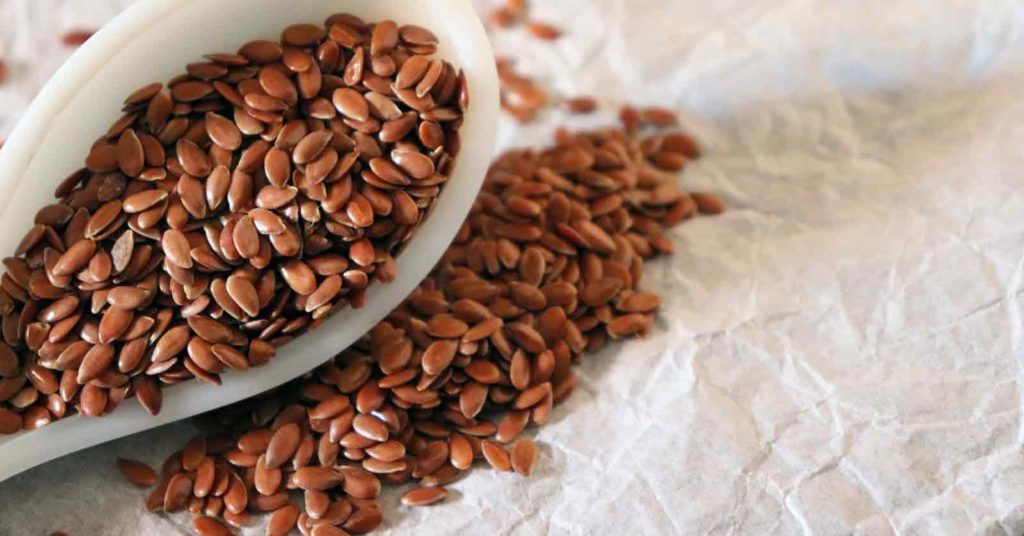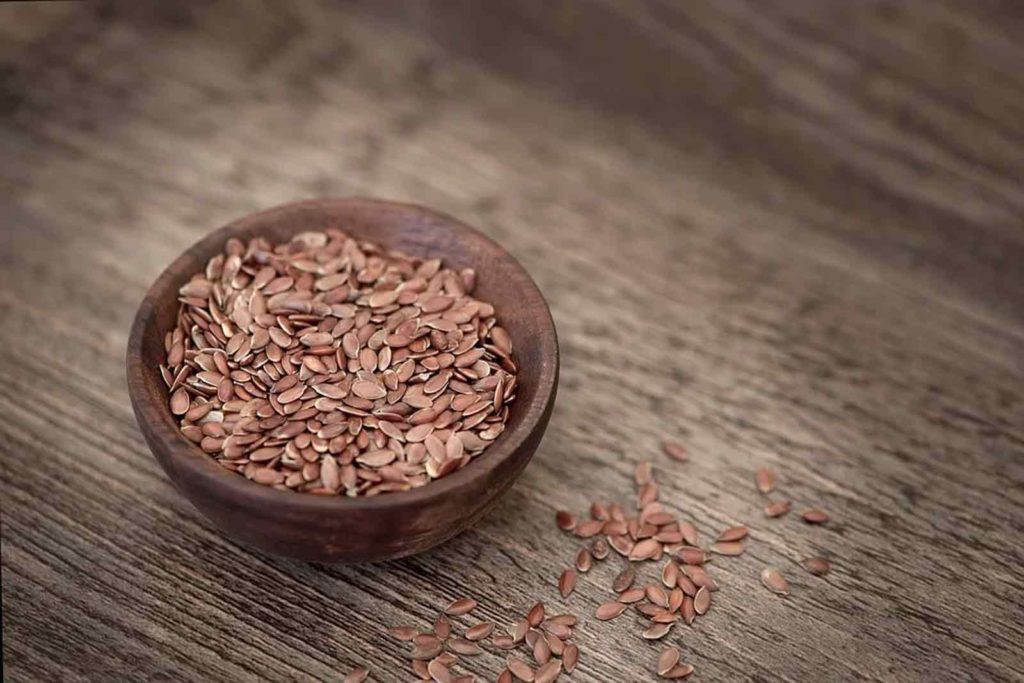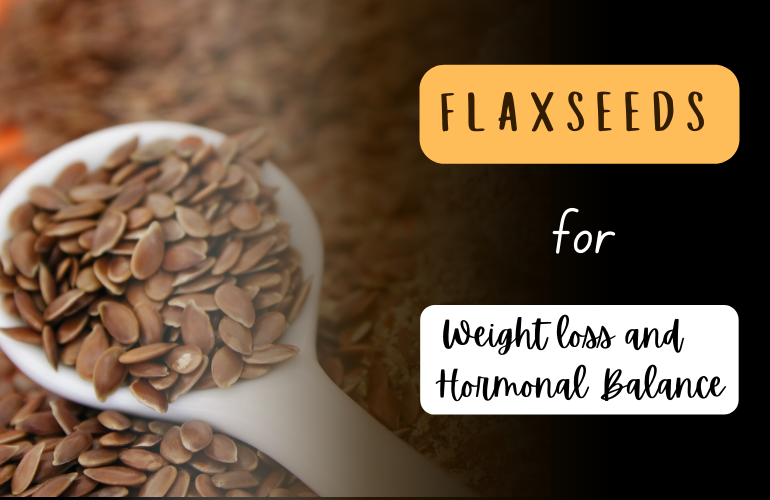Flax seeds or Linseeds also known as Alsi in Hindi are the powerhouses of nutrients. They are deep brown or golden colour seeds rich in soluble and insoluble fibre. They are the richest source of plant-based omega 3 & alpha-linolenic acid. Flax Seeds are also high in phytoestrogens, and lignins which mimic estrogen and help maintain hormonal balance in females. They are great for improving gut health & reducing inflammation because they are also rich in prebiotics.
Nutritional value & plant compounds present in Flax Seeds!

- 30% of flax seeds are fibre.
- 25% of flax seeds are quality protein.
- 42% ALA (Alpha-lipoic acid, required for energy production)
- Flax seeds are rich in antioxidants like phytochemicals, alkaloids, flavonoids & phenolic acid.
- They are rich in micronutrients including thiamine, copper, magnesium, calcium, phosphorus, iron, and vitamin B6.
- They are loaded with the goodness of plant compounds like coumaric acid, ferulic acid, phytosterols, and lignans. Flax seeds contain 800 times more lignans than other foods, which function as phytoestrogens that help maintain hormonal balance, reduce blood sugar, reduce metabolic syndrome and have anti-inflammatory effects. Lignans are fermented by gut bacteria in the digestive system which helps reduce many infections.
1 Tbsp Flax seeds have:
| Calories | Protein | Carbohydrate | Fat | Fiber |
| 38 Kcal | 1.5 gm | 2 gm | 3 gm | 1.9 gm |
Health Benefits of Flax Seeds:

- It supports the weight loss & weight management process.
- It improves the reproductive health of both men & women.
- It is good for your heart.
- It helps in reducing blood cholesterol levels.
- It is a rich source of omega-3 fatty acids.
- It helps in reducing blood pressure.
- It is known to cure many digestive problems Like constipation.
- It also cures problems related to menstrual disorders like cramps, irregular periods, hormonal imbalance, menopause, PCOS, and PCOD.
- It improves the health of skin and hair.
- It helps in regulating blood sugar levels too.
- It possesses amazing anti-inflammatory properties.
- Flax seeds are extremely useful for joint & muscle pain.
How many flax seeds in a day?
You shall gradually start with 5g ( one tsp) a day.
You can take a maximum of 8-12g of flaxseeds per day ( 1.5 tsp a day).
This is because it’s warm in nature and has laxative properties.
Best time and form to consume flax seeds?
- The best time to consume flaxseeds is in the morning with breakfast to get the utmost nutrition. The protein and fibre will help boost metabolism and the antioxidants will help promote health.
- Or, you can also consume flaxseeds at bedtime to improve sleep and digestive health. At this time, it helps increase serotonin levels. Flaxseeds are also high in magnesium, amino acid tryptophan & omega-3, out of which all the ingredients are known to promote sleep.
- You need not consume them as separate drinks like mixed in water or tea.
- You can have them in snacks like bars or ladoos, it is an easy and effective way to consume it.
How to Consume Flax Seeds for Best Results?
- Always buy in small quantities & check before you buy.
- Consume extra water in your diet when you consume flax seeds.
- Don’t consume flax seeds as a whole.
- The best way to consume flax seeds is to roast them slightly on low heat till they start to crackle. Next, grind them to make powder, and then add them to your smoothies, meals etc. Make powder in small quantities.
- Another way is Sprouting. Sprouting flax seeds is the best way to increase nutritional content & absorption.
- Soak and make a paste of flax seeds to add to soups, milk, curd or buttermilk.
- Add in salads or stews.
- Consume in form of ladoos during winter (especially post pregnancy or for PCOS, PCOD)
Possible Side Effects of Consuming Flax seeds & who should avoid it?
- Women trying to conceive should avoid flaxseeds in large quantities.
- Look for Possible allergies like mouth ulcers, swelling, redness, skin irritation, rash etc. after a few days of consuming it.
- It may interfere with some medications, hence consult your physician immediately.
- Women with endometriosis should avoid the consumption of flaxseeds.
- Don’t consume flaxseeds during heavy bleeding in the menstrual cycle.
- May cause digestive disorders if consumed in excesses like gas, bloating, abdominal pain and nausea
- Flaxseeds shouldn’t be consumed in large quantities by children.
- Flax seeds have Cyanogenic glycosides, which can bind with sulphur and turn into thiocyanates. This can impair the thyroid gland. Hence people with thyroid should have a moderate proportion.
- People with bleeding and blood clot disorder should avoid it.
- Flaxseeds can also turn out to be unsafe during pregnancy, therefore shall be avoided.
This was all about the ingredient: “FLAXSEEDS”! Keep all the points in mind while you consume it. Eat wisely, eat nicely!
